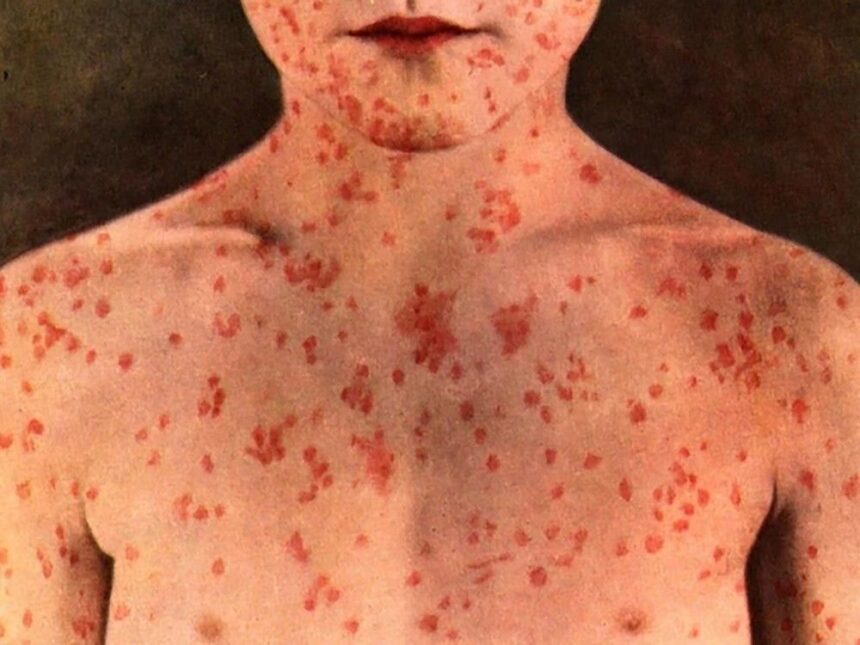In what once seemed like a distant memory of public health history, measles has made an alarming comeback in Ottawa and across Ontario. Provincial health officials confirmed yesterday that confirmed cases have surpassed the 1,000 mark in what’s becoming the province’s most significant measles outbreak in decades.
“We’re seeing infection rates we haven’t encountered since before widespread vaccination became the norm,” says Dr. Vera Etches, Ottawa’s Medical Officer of Health. “This isn’t just concerning—it’s a public health emergency that requires immediate community response.”
The outbreak, which began with isolated cases in February, has rapidly gained momentum throughout spring. Ottawa Public Health reports that local cases now account for approximately 120 of the provincial total, with new infections appearing daily across neighborhoods from Kanata to Orleans.
At the heart of this crisis lies a perfect storm of factors. Vaccination rates have declined steadily over the past five years, creating vulnerable pockets in our community. The post-pandemic return to normal social activities has increased transmission opportunities, and the highly contagious nature of the measles virus means it spreads with remarkable efficiency.
“One infected person can transmit measles to between 12-18 unprotected individuals,” explains Dr. Robert Cushman, former Ottawa medical health officer and current health advisor at The Ottawa Hospital. “That’s significantly more contagious than COVID-19 and explains the rapid acceleration we’re witnessing.”
The outbreak has forced Ottawa schools to implement emergency protocols reminiscent of pandemic measures. Six schools across the Ottawa-Carleton District School Board have reported cases, with Broadview Public School temporarily moving to remote learning after five confirmed cases emerged last week.
Parent Sarah Richardson describes the situation as deeply concerning. “We thought these diseases were behind us. My youngest isn’t old enough for the MMR vaccine yet, so we’re essentially keeping him home until this subsides. It’s like 2020 all over again.”
The demographics tell an important story. While measles can affect anyone without immunity, Ottawa Public Health data shows approximately 60% of current cases involve children under 10. Another 25% affect teenagers and young adults, while the remaining cases span across all age groups.
The symptoms typically appear 7-14 days after exposure, beginning with high fever, cough, runny nose, and red, watery eyes. The distinctive measles rash usually develops 3-5 days after initial symptoms begin.
“What makes measles particularly dangerous is both its extreme contagiousness and potential complications,” says nurse practitioner Jessica Thompson at the Centretown Community Health Centre. “Even in developed countries with good healthcare, measles can lead to pneumonia, encephalitis, and rarely, death.”
Health authorities have mounted an aggressive response. Ottawa Public Health has established five pop-up vaccination clinics across the city, operating seven days a week with extended hours. The Queensway-Carleton Hospital has designated a separate assessment area for patients with measles symptoms to prevent transmission within medical facilities.
Provincial Health Minister Sylvia Jones announced additional emergency funding yesterday to support local health units dealing with the outbreak. “We’re allocating $12 million immediately to affected regions for enhanced vaccination efforts, public education, and contact tracing,” Jones stated during a press conference at Queen’s Park.
For Ottawa residents, health officials provide clear guidance: check your vaccination status immediately. Adults born before 1970 likely have natural immunity from childhood exposure. Those born after 1970 should have received two MMR (measles, mumps, rubella) vaccine doses. Anyone uncertain about their status should contact their healthcare provider or Ottawa Public Health.
“The vaccine is remarkably effective,” emphasizes Dr. Etches. “Two properly timed doses provide approximately 97% protection against measles. Even one dose offers significant protection.”
Community response has included both concern and action. Local pharmacies report increased requests for vaccination record checks, and family physicians are experiencing high call volumes from worried patients. The Ottawa-Car







